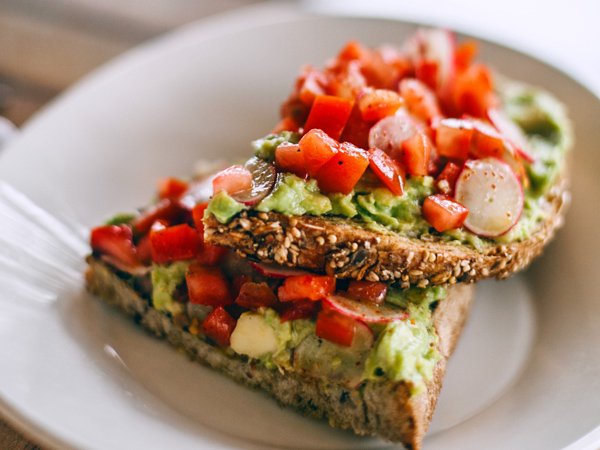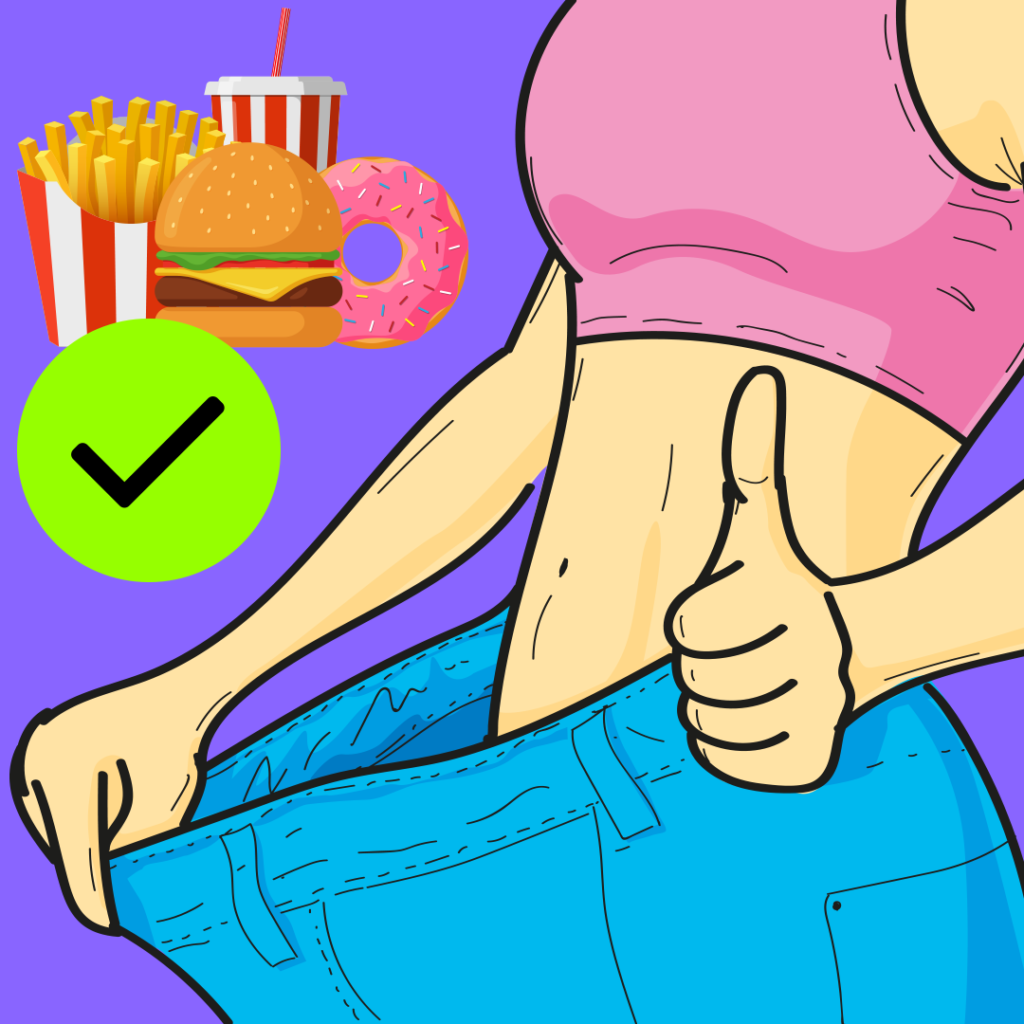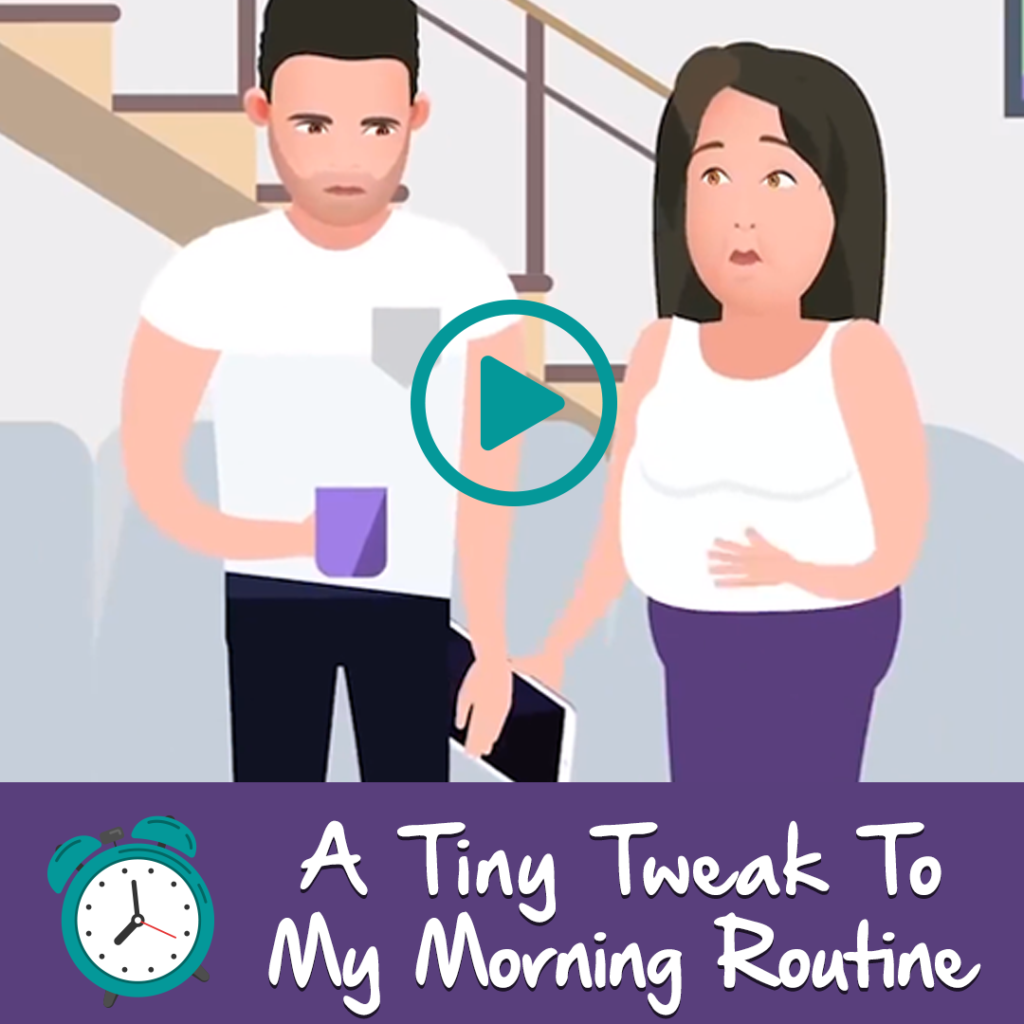Singarcity, Singarbiz
How to Lose Weight Fast Without Dieting or Exercise?
Losing weight can be a challenge, but it doesn’t have to be difficult. There are many ways to lose weight without dieting or exercise. In fact, some of the best ways to lose weight are the simplest.
In this blog post, we will discuss some of the best ways to lose weight fast without dieting or exercise. We will cover topics such as:
In this blog, you will discover the following:

What are challenges of traditional weight loss methods?:→

Concept of losing weight without dieting or exercise: →

Basics of weight loss: calorie deficit and metabolism→

How to Lose Weight Fast Without Dieting or Exercise?→

Mindset and Motivation for Weight loss.→

Tips for making dietary changes without strict dieting→

Physical Activity and Weight Loss:→

Significance of healthy eating habits→

connection between sleep, stress, and weight loss→

Seeking Professional Guidance for weight loss.

Conclusion:→

What are challenges of traditional weight loss methods?
Traditional weight loss methods often involve strict dietary restrictions and intense workout routines.
While these approaches may yield short-term results, they can be difficult to sustain in the long run. Many people struggle with adhering to restrictive diets, experiencing constant hunger and cravings that can lead to feelings of deprivation.
Additionally, finding the time and motivation for rigorous exercise routines can be a challenge, especially for those with busy schedules or physical limitations.
These challenges often make it difficult to achieve long-term weight loss success and maintain a healthy lifestyle.

Concept of losing weight without dieting or exercise.
Fortunately, there is an alternative approach to weight loss that doesn’t rely on traditional methods of dieting or exercise.
This approach focuses on making sustainable lifestyle changes that promote overall health and well-being, rather than just focusing on the number on the scale.
By incorporating simple yet effective strategies into your daily routine, you can achieve weight loss without the need for strict diets or intense workouts.
This approach emphasizes adopting healthy habits, nourishing your body with nutrient-dense foods, and finding enjoyable ways to stay active.
Get ready to explore a new paradigm of weight loss that prioritizes your overall health and happiness.

Basics of weight loss: calorie deficit and metabolism
When it comes to weight loss, understanding the basics is crucial. At its core, weight loss is achieved by creating a calorie deficit, which means consuming fewer calories than your body needs to maintain its current weight.
This deficit prompts your body to tap into its stored fat reserves for energy, resulting in weight loss over time.
Another important factor to consider is metabolism. Your metabolism refers to the processes in your body that convert food into energy.
Each person has a unique metabolic rate, which determines how efficiently their body burns calories. While some individuals have a naturally faster metabolism, others may have a slower one.
However, it’s important to note that metabolism can be influenced by various factors, such as age, genetics, and muscle mass.
How To loss weight fast ?
It’s important to set achievable goals that align with your body’s natural capabilities and your lifestyle.
Aiming for steady weight loss of 1-2 pounds per week is generally considered healthy and sustainable.
nstead of following restrictive diets or eliminating entire food groups, focus on balanced nutrition. Include a variety of nutrient-dense foods in your meals, such as fruits, vegetables, whole grains, lean proteins, and healthy fats.
This ensures that you receive all the essential nutrients your body needs for optimal function while keeping your calorie intake in check.

Prioritize sleep and stress management→
Adequate sleep and stress management are often overlooked but crucial aspects of weight loss. Lack of sleep can disrupt hormones related to appetite and satiety, leading to increased cravings and overeating.
Managing stress through techniques like meditation, yoga, or engaging in hobbies can help prevent emotional eating and promote overall well-being.
Incorporating regular physical activity into your routine not only helps burn calories but also improves cardiovascular health, builds muscle, and boosts your metabolism.
Find activities you enjoy, whether it’s walking, cycling, dancing, or participating in group classes. Aim for at least 150 minutes of moderate-intensity aerobic exercise or 75 minutes of vigorous-intensity exercise per week, along with strength training exercises twice a week.
Paying attention to portion sizes can make a significant difference in weight loss. Practice mindful eating by listening to your body’s hunger and fullness cues.
Using smaller plates, measuring serving sizes, and being mindful of high-calorie condiments or toppings can help you maintain portion control.
Significance of healthy eating habits
Eating healthy is important for weight loss and overall health. When you eat healthy foods, you give your body the nutrients it needs to function properly and stay strong. You also reduce your risk of developing chronic diseases such as heart disease, stroke, type 2 diabetes, and some types of cancer.
There are many different healthy eating habits that you can adopt. Some of the most important include:
- Eating plenty of fruits and vegetables: Fruits and vegetables are low in calories and high in nutrients. They are also a good source of fiber, which can help you feel full and satisfied after eating.
- Choosing whole grains over refined grains: Whole grains are a good source of fiber and nutrients. They also help to keep you feeling full longer.
- Limiting unhealthy fats: Unhealthy fats, such as saturated and trans fats, can increase your risk of heart disease and other health problems.
- Choosing lean protein sources: Lean protein sources, such as fish, chicken, and beans, are low in calories and fat. They are also a good source of protein, which is essential for building and maintaining muscle mass.
- Limiting added sugar: Added sugar is a major source of empty calories. It can also contribute to weight gain and other health problems.
- Drinking plenty of water: Water is essential for good health. It also helps to keep you feeling full and can help you burn calories.
Tips for making dietary changes without strict dieting
Many people believe that they must follow a strict diet to lose weight. However, this is not always the case.
In fact, strict diets can often lead to weight regain and other health problems.
There are many ways to make healthy dietary changes without going on a strict diet.
Instead of trying to change everything about your diet all at once, make small changes that you can stick with over time.
Focus on adding healthy foods to your diet rather than taking unhealthy foods away. This will help you make changes that are more sustainable in the long run.
Find healthy recipes that you enjoy. This will make it more likely that you will stick with your new eating habits.
Make changes to your environment by keeping healthy snacks on hand and avoiding keeping unhealthy foods in your home.
If you are struggling to make healthy changes on your own, talk to a registered dietitian or other healthcare professional.
They can help you create a plan that is right for you.
Here are some Tips for tips for making dietary changes without strict dieting.
- Make small changes to your diet that you can stick with over time. Don’t try to change everything at once.
- Add healthy foods to your diet instead of taking unhealthy foods away. This will help you make changes that are more sustainable in the long run.
- Find healthy recipes that you enjoy. This will make it more likely that you will stick with your new eating habits.
- Make changes to your environment. Keep healthy snacks on hand and avoid keeping unhealthy foods in your home.
- Don’t be afraid to ask for help. Talk to a registered dietitian or other healthcare professional if you are struggling to make healthy changes on your own. They can help you create a plan that is right for you.


Role of mindful eating and portion control
Mindful eating is a powerful tool for weight loss and overall well-being.
It involves being fully present and aware of your eating experience, paying attention to your body’s cues, and making conscious choices.
Here’s how you can incorporate mindful eating into your lifestyle:
- Slow down and savor your meals: Take your time to eat and enjoy the flavors, textures, and aromas of your food. Chew thoroughly and be present in the moment, savoring each bite.
- Listen to your body: Tune in to your body’s hunger and fullness signals. Eat when you’re physically hungry and stop when you’re comfortably full. Avoid eating out of boredom, stress, or emotional triggers.
Concept of balanced and nutritious meals
A key component of successful weight loss is consuming balanced and nutritious meals.
- Include all food groups: Aim for a balanced plate that includes a variety of food groups. Fill half of your plate with vegetables and fruits, one-quarter with lean proteins, and one-quarter with whole grains or starchy vegetables. Add a source of healthy fats, such as nuts, seeds, or avocado.
- Prioritize lean proteins: Incorporate lean sources of protein, such as poultry, fish, beans, lentils, tofu, or Greek yogurt. Protein helps keep you feeling full and supports muscle growth and repair.
- Choose complex carbohydrates: Opt for whole grains like quinoa, brown rice, whole wheat bread, and oats. These provide fiber, which aids digestion and helps you feel satisfied for longer.
Remember, sustainable weight loss is not about deprivation or strict rules. It’s about making long-term lifestyle changes that promote a healthy relationship with food and support your overall well-being.
By embracing healthy eating habits, practicing portion control, and adopting mindful eating, you can achieve your weight loss goals while enjoying a balanced and nourishing diet.
Physical Activity and Weight Loss:
Being physically active is essential for losing weight and keeping it off.
While traditional exercise routines may not be everyone’s cup of tea, there are plenty of alternative ways to get moving that can help you shed pounds and improve your overall fitness.
In this section, we will explore why physical activity is important for weight loss and provide practical tips for incorporating movement into your daily routine.
Alternative forms of exercise for weight loss
When it comes to exercise, it’s important to find activities that you enjoy and that align with your interests and preferences. Not everyone likes spending hours at the gym or running long distances.
Fortunately, there are many other forms of exercise that can be just as effective for weight loss. You might consider trying activities such as:
- Dancing: Whether it’s salsa, hip-hop, or ballroom, dancing can be a fun and energetic way to burn calories and tone your muscles.
- Cycling: Hop on a bicycle and explore your neighborhood or nearby trails. Cycling is a low-impact exercise that can be enjoyed solo or with friends and family.
- Hiking: Take advantage of the great outdoors and go for a hike. Not only will you get your heart rate up, but you’ll also enjoy the beauty of nature.
- Swimming: Dive into the pool and swim laps or join a water aerobics class. Swimming provides a full-body workout while being gentle on the joints.
Suggestions for incorporating movement and exercise without traditional workouts
Not everyone has the time or inclination for structured workout sessions.
However, there are plenty of ways to incorporate movement and exercise into your daily routines without hitting the gym.
Consider the following suggestions:
- Take the stairs instead of the elevator or escalator whenever possible.
- Park your car farther away from your destination and walk the remaining distance.
- Incorporate short walks into your lunch breaks or coffee breaks at work.
- Use a standing desk or take regular standing and stretching breaks if you have a sedentary job.
- Engage in active hobbies such as gardening, playing a sport, or joining a recreational club.
Being physically active is essential for losing weight and keeping it off.
While traditional exercise routines may not be everyone’s cup of tea, there are plenty of alternative ways to get moving that can help you shed pounds and improve your overall fitness.
In this section, we will explore why physical activity is important for weight loss and provide practical tips for incorporating movement into your daily routine.
Mindset and Motivation for Weight loss.
When you start your weight loss journey, it is important to have a positive mindset for long-term success.
Your mindset can greatly influence your behaviors, habits, and ultimately, your ability to achieve your weight loss goals. Here are some key points to consider:
- Believe in yourself and your ability to make positive changes. Recognize that weight loss is a journey that requires patience, dedication, and perseverance.
- Focus on progress rather than perfection. Embrace the idea that small steps forward are still steps in the right direction. Celebrate your accomplishments along the way, no matter how small they may seem.
- Be kind to yourself throughout the process. Acknowledge that setbacks and challenges are normal, and treat yourself with understanding and forgiveness.
- Adopt a mindset that views challenges and obstacles as opportunities for growth and learning. See setbacks as temporary and use them as motivation to keep moving forward.

Strategies for staying motivated throughout the weight loss journey
Staying motivated during a weight loss journey can be challenging, but with the right strategies, you can maintain your enthusiasm and drive. Consider the following tips to help you stay motivated:
- Set realistic goals: Break down your weight loss goal into smaller, achievable milestones. Setting realistic goals will give you a sense of accomplishment and keep you motivated as you reach each milestone.
- Find your why: Identify your reasons for wanting to lose weight and connect with them on a deeper level. Whether it’s improving your health, boosting your self-confidence, or setting a positive example for your loved ones, remind yourself of your motivations regularly.
- Track your progress: Keep a record of your progress to visually see how far you’ve come. This can be done by regularly weighing yourself, taking body measurements, or keeping a journal of your food intake and exercise. Seeing your progress can provide a sense of achievement and motivate you to keep going.
- Find support: Surround yourself with a supportive network of friends, family, or even online communities who share similar goals. Engaging with others who are on a similar journey can provide encouragement, accountability, and valuable tips and advice.
- Reward yourself: Treat yourself to non-food rewards for reaching milestones or sticking to your healthy habits. It could be a new workout outfit, a relaxing spa day, or a fun activity that you enjoy. Celebrating your achievements will reinforce positive behaviors and keep you motivated.
Offer tips for managing cravings and emotional eating.
Cravings and emotional eating can be challenging during a weight loss journey. To manage them effectively, you can try the following strategies:
- Identify triggers: Recognize the situations, emotions, or thoughts that tend to trigger cravings or emotional eating. By understanding your triggers, you can develop alternative coping mechanisms.
- Find healthier alternatives: When cravings strike, try to find healthier alternatives to satisfy them. For example, if you’re craving something sweet, opt for a piece of fruit or a small portion of dark chocolate.
- Practice mindful eating: Pay attention to your body’s hunger and fullness cues. Eat slowly, savoring each bite, and focus on the sensory experience of eating. This can help you become more aware of your food choices and prevent overeating.
- Seek emotional support: If emotional eating is a recurring issue, consider seeking support from a therapist or counselor who can help you develop healthier coping mechanisms for dealing with emotions.
Connection between sleep, stress, and weight loss
Getting adequate sleep and effectively managing stress are crucial factors that can significantly impact your weight loss journey. Here’s why:
- Sleep and weight loss: Lack of sleep can disrupt your body’s hormonal balance, particularly affecting the hormones responsible for appetite regulation. When you don’t get enough sleep, the hormone ghrelin, which stimulates hunger, increases, while the hormone leptin, which signals satiety, decreases. This imbalance can lead to increased cravings, overeating, and difficulty in maintaining a healthy weight.
- Stress and weight loss: Chronic stress triggers the release of the stress hormone cortisol, which can influence your food choices and contribute to weight gain, especially around the abdominal area. Stress can also lead to emotional eating as a coping mechanism, further hindering weight loss efforts.
Tips for improving sleep quality and managing stress levels
To support your weight loss goals, it’s essential to prioritize quality sleep and effective stress management. Here are some tips to help you achieve better sleep and reduce stress:
- Establish a sleep routine: Create a consistent sleep schedule by going to bed and waking up at the same time every day, even on weekends. This helps regulate your body’s internal clock and promotes better sleep quality.
- Create a sleep-friendly environment: Make your bedroom conducive to sleep by keeping it cool, dark, and quiet. Remove electronic devices that emit blue light, as it can interfere with your sleep patterns.
- Practice relaxation techniques: Incorporate relaxation techniques such as deep breathing exercises, meditation, or gentle stretching into your daily routine. These activities can help calm your mind, reduce stress levels, and prepare your body for restful sleep.
- Limit caffeine and electronic device usage: Avoid consuming caffeine or using electronic devices close to bedtime, as they can interfere with your ability to fall asleep. Instead, opt for a relaxing bedtime routine such as reading a book or taking a warm bath.
- Engage in stress-reducing activities: Find healthy outlets to manage stress, such as engaging in regular physical activity, practicing yoga or mindfulness, or pursuing hobbies that bring you joy and relaxation.
Seeking Professional Guidance for weight loss.
When embarking on a weight loss journey, seeking professional guidance is crucial for your overall well-being and success.
Here’s why it’s important to consult healthcare professionals:
- Personalized approach: Healthcare professionals, such as registered dietitians or nutritionists, can provide personalized guidance tailored to your unique needs, preferences, and health conditions. They have the expertise to design a well-rounded weight loss plan that takes into account your specific dietary requirements and any potential medical considerations.
- Safety and monitoring: Professional guidance ensures that you approach weight loss in a safe and healthy manner. Healthcare professionals can monitor your progress, assess your nutritional status, and make adjustments to your plan as needed. They can also provide guidance on managing any underlying health conditions that may impact your weight loss journey.
Benefits of working with registered dietitians or nutritionists
Working with registered dietitians or nutritionists can offer numerous benefits to support your weight loss efforts:
- Expertise and knowledge: Registered dietitians and nutritionists have extensive education and training in the field of nutrition. They stay updated with the latest research and guidelines, ensuring that you receive accurate and evidence-based information to guide your weight loss journey.
- Individualized meal planning: These professionals can develop personalized meal plans that meet your nutritional needs while aligning with your weight loss goals. They can help you navigate portion sizes, select nutrient-dense foods, and incorporate a variety of healthy options into your diet.
- Behavior and lifestyle modification: Registered dietitians and nutritionists can assist you in making sustainable behavior and lifestyle changes. They can provide practical strategies to address emotional eating, develop healthy eating habits, and cultivate a positive relationship with food.
Resources for finding reliable weight loss support
Finding reliable weight loss support is essential for staying motivated and informed throughout your journey. Here are some resources to help you find trustworthy professionals and support networks:
- National associations: Look for reputable national associations of registered dietitians or nutritionists, such as the Academy of Nutrition and Dietetics (AND). These associations often have directories that allow you to search for professionals in your area.
- Referrals from healthcare providers: Consult your primary care physician, healthcare team, or other trusted medical professionals for recommendations. They can provide referrals to registered dietitians or nutritionists with expertise in weight management.
- Online directories: Utilize online directories and platforms that connect individuals with qualified professionals, ensuring they hold the necessary credentials and qualifications.
- Support groups and communities: Join weight loss support groups or online communities where you can connect with others who share similar goals and challenges. These groups can provide valuable insights, encouragement, and accountability throughout your journey.
Conclusion:
In this blog post, we have explored various aspects of weight loss without dieting or exercise. Let’s recap the key points:
- Introduction: We discussed the challenges of traditional weight loss methods and introduced the concept of losing weight without dieting or exercise.
- Understanding Weight Loss: We explained the basics of weight loss, emphasizing the importance of a sustainable and long-term approach.
- Lifestyle Changes for Weight Loss: We highlighted the significance of healthy eating habits, provided tips for making dietary changes without strict dieting, discussed mindful eating and portion control, and introduced the concept of balanced and nutritious meals.
- Physical Activity and Weight Loss: We explored alternative forms of exercise, discussed the benefits of incorporating physical activity into daily routines, and provided suggestions for incorporating movement and exercise without traditional workouts.
- Mindset and Motivation: We discussed the importance of a positive mindset for successful weight loss, provided strategies for staying motivated throughout the journey, and offered tips for managing cravings and emotional eating.
- Sleep and Stress Management: We explained the connection between sleep, stress, and weight loss, and provided tips for improving sleep quality and managing stress levels.
- Seeking Professional Guidance: We highlighted the importance of consulting healthcare professionals, discussed the benefits of working with registered dietitians or nutritionists, and provided resources for finding reliable weight loss support.
Achieving and maintaining a healthy weight involves more than just dieting or exercise. It requires a holistic approach that encompasses various aspects of your lifestyle, mindset, and overall well-being. By implementing the strategies and tips discussed in this blog post, you can embark on a sustainable and enjoyable weight loss journey.
Transform Your Body Today: Download Our Free Ultimate Weight Loss Guide!
Related Articles:
1. 5 Reasons Why Healthy Food Delivery is the Best Way to Eat Healthy
2. How to Lose Weight Fast and Easy with Eat Stop Eat
3. BioFit for weight loss probiotic: Does it Really Work?
4. Intermittent Fasting: A Comprehensive Guide to Achieving Optimal Health
5. Discover the Science Behind ExiPure: The Ultimate Solution for Optimal Health







